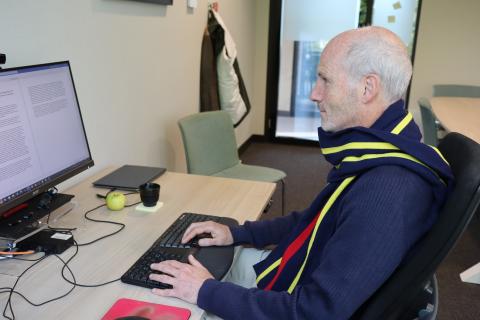Special of five podcasts on energy and climate with Reyer Gerlagh in Climate Week
As part of Climate Week starting Oct. 31, Tilburg University is broadcasting a podcast series of five short episodes on the between the relationship between energy and climate crisis (in Dutch). Topics include the role of government and consumers, (sustainable) energy suppliers, EU policy and the impact of the crisis on the climate. Professor of Environmental Economics Reyer Gerlagh, one of the authors of the fifth IPCC (Intergovernmental Panel on Climate Change) report, explains in these broadcasts how one's own actions can positively influence the crises.
The shortages caused by reduced gas supplies from Russia and the incomplete energy transition to renewable energy, have pushed prices to enormous heights. Changing supply, changing consumption, changing policies in response have implications for our wallets, the future and the climate.
Analysis about the crisis focuses primarily on the supply and the price of energy on the market, but too little attention is paid to what can be changed on the demand side and what governments and consumers themselves can do to reduce shortages.

Reyer Gerlagh
In the episodes, Gerlagh argues:
- Let the government impose obligations on energy use as is done abroad: a maximum of 19 degrees in offices, for example.
- It is not unjustified for energy suppliers to raise their prices: they themselves face huge price increases. If they do not raise their prices they risk going bankrupt and the government, and thus the taxpayer, will be even further from home, because then the suppliers will have to be supported.
- It is good that the European Union wants to skim off profits from renewable energy producers because they have also made huge profits from higher energy prices, and that proposal does not stand in the way of the energy transition.
- There will continue to be energy shortages in the coming years, but the EU and also the Netherlands can do much more to influence those prices themselves.
- Energy shortages have greatly accelerated sustainability and that has a positive impact on climate change, although the energy transition is far from complete.
Contact
Contact
For more information, please contact science editor Tineke Bennema, tel. +31 (0)13 4668998 and c.e.bennema@tilburguniversity.edu
For recent contributions in the media on the topic by Professor Reyer Gerlagh:



